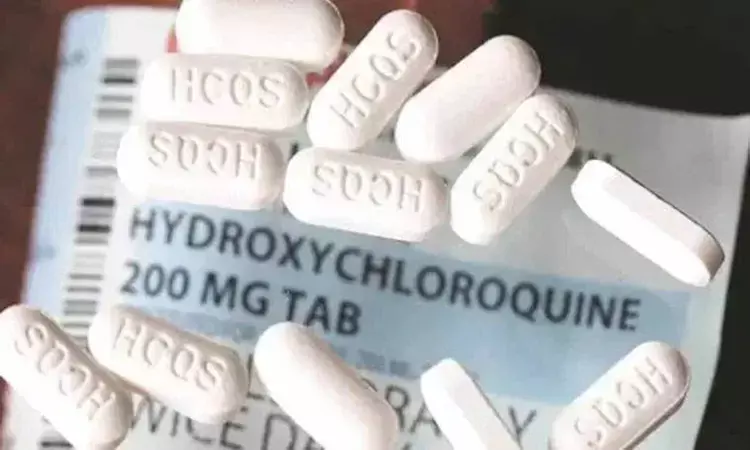- Home
- Medical news & Guidelines
- Anesthesiology
- Cardiology and CTVS
- Critical Care
- Dentistry
- Dermatology
- Diabetes and Endocrinology
- ENT
- Gastroenterology
- Medicine
- Nephrology
- Neurology
- Obstretics-Gynaecology
- Oncology
- Ophthalmology
- Orthopaedics
- Pediatrics-Neonatology
- Psychiatry
- Pulmonology
- Radiology
- Surgery
- Urology
- Laboratory Medicine
- Diet
- Nursing
- Paramedical
- Physiotherapy
- Health news
- Fact Check
- Bone Health Fact Check
- Brain Health Fact Check
- Cancer Related Fact Check
- Child Care Fact Check
- Dental and oral health fact check
- Diabetes and metabolic health fact check
- Diet and Nutrition Fact Check
- Eye and ENT Care Fact Check
- Fitness fact check
- Gut health fact check
- Heart health fact check
- Kidney health fact check
- Medical education fact check
- Men's health fact check
- Respiratory fact check
- Skin and hair care fact check
- Vaccine and Immunization fact check
- Women's health fact check
- AYUSH
- State News
- Andaman and Nicobar Islands
- Andhra Pradesh
- Arunachal Pradesh
- Assam
- Bihar
- Chandigarh
- Chattisgarh
- Dadra and Nagar Haveli
- Daman and Diu
- Delhi
- Goa
- Gujarat
- Haryana
- Himachal Pradesh
- Jammu & Kashmir
- Jharkhand
- Karnataka
- Kerala
- Ladakh
- Lakshadweep
- Madhya Pradesh
- Maharashtra
- Manipur
- Meghalaya
- Mizoram
- Nagaland
- Odisha
- Puducherry
- Punjab
- Rajasthan
- Sikkim
- Tamil Nadu
- Telangana
- Tripura
- Uttar Pradesh
- Uttrakhand
- West Bengal
- Medical Education
- Industry
WHO expert panel strongly advises against use of hydroxychloroquine to prevent covid-19

The anti-inflammatory drug hydroxychloroquine should not be used to prevent infection in people who do not have covid-19, say a WHO Guideline Development Group (GDG) panel of international experts in The BMJ today.
There is widespread interest in whether drug interventions can be used for the prevention of covid-19, but there is uncertainty about which drugs, if any, are effective.
Their strong recommendation is based on high certainty evidence from six randomised controlled trials involving over 6,000 participants with and without known exposure to a person with covid-19 infection.
High certainty evidence showed that hydroxychloroquine had no meaningful effect on death and admission to hospital, while moderate certainty evidence showed that hydroxychloroquine had no meaningful effect on laboratory confirmed covid-19 infection and it probably increases the risk of adverse effects.
As such, the panel considers that this drug is no longer a research priority and that resources should be used to evaluate other more promising drugs to prevent covid-19.
This guideline applies to all individuals who do not have covid-19, regardless of their exposure to a person with covid-19 infection.
The panel judged that almost all people would not consider this drug worthwhile, and also decided that factors such as resources, feasibility, acceptability, and equity for countries and healthcare systems were unlikely to alter the recommendation.
Today's recommendation is the first version of a living guideline for drugs to prevent covid-19, developed by the World Health Organization with the methodological support of MAGIC Evidence Ecosystem Foundation. It's aim is to provide trustworthy guidance on the management of covid-19 and help doctors make better decisions with their patients.
Living guidelines are useful in fast moving research areas like covid-19 because they allow researchers to update previously vetted and peer reviewed evidence summaries.
New recommendations for other preventive drugs for covid-19 will be added to this guideline as more evidence becomes available.
https://www.bmj.com/content/372/bmj.n526
Hina Zahid Joined Medical Dialogue in 2017 with a passion to work as a Reporter. She coordinates with various national and international journals and association and covers all the stories related to Medical guidelines, Medical Journals, rare medical surgeries as well as all the updates in the medical field. Email: editorial@medicaldialogues.in. Contact no. 011-43720751
Dr Kamal Kant Kohli-MBBS, DTCD- a chest specialist with more than 30 years of practice and a flair for writing clinical articles, Dr Kamal Kant Kohli joined Medical Dialogues as a Chief Editor of Medical News. Besides writing articles, as an editor, he proofreads and verifies all the medical content published on Medical Dialogues including those coming from journals, studies,medical conferences,guidelines etc. Email: drkohli@medicaldialogues.in. Contact no. 011-43720751


